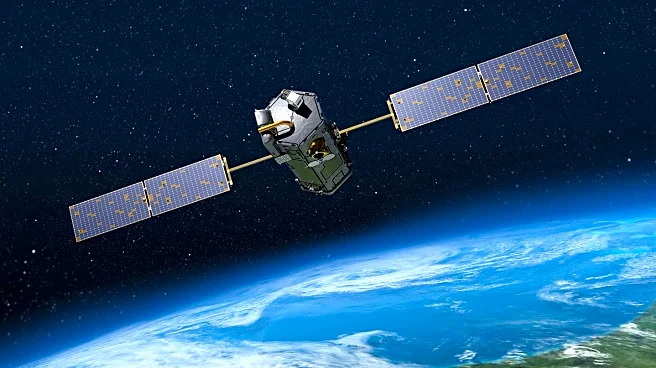What's Happening?
NASA's Applied Remote Sensing Training Program (ARSET) is conducting a two-part online training session on October 7 and 9, 2025, focusing on the use of satellite data to track climate-sensitive infectious diseases. The training aims to educate participants on how to apply NASA's satellite remote sensing data to predict outbreaks of vector-borne diseases, such as malaria, which thrive in specific climate conditions. The sessions will include case studies and provide access to common NASA remote sensing datasets, helping attendees understand how to utilize these resources effectively.
Why It's Important?
This training is crucial as it equips public health officials, biostatisticians, and other stakeholders with the tools to anticipate and manage outbreaks of climate-sensitive diseases. By leveraging satellite data, participants can improve their forecasting capabilities, potentially leading to more timely and effective interventions. This proactive approach can enhance public health responses, reduce disease transmission, and ultimately save lives. The training also underscores the importance of interdisciplinary collaboration in addressing global health challenges, combining expertise from fields such as ecology, medicine, and data science.
What's Next?
Participants who complete the training will be better prepared to apply remote sensing data in their respective fields, potentially leading to improved disease monitoring and response strategies. The knowledge gained could foster new research initiatives and collaborations aimed at combating climate-sensitive diseases. As climate change continues to alter environmental conditions, the demand for such training and data-driven approaches is likely to grow, prompting further development of remote sensing technologies and methodologies.










